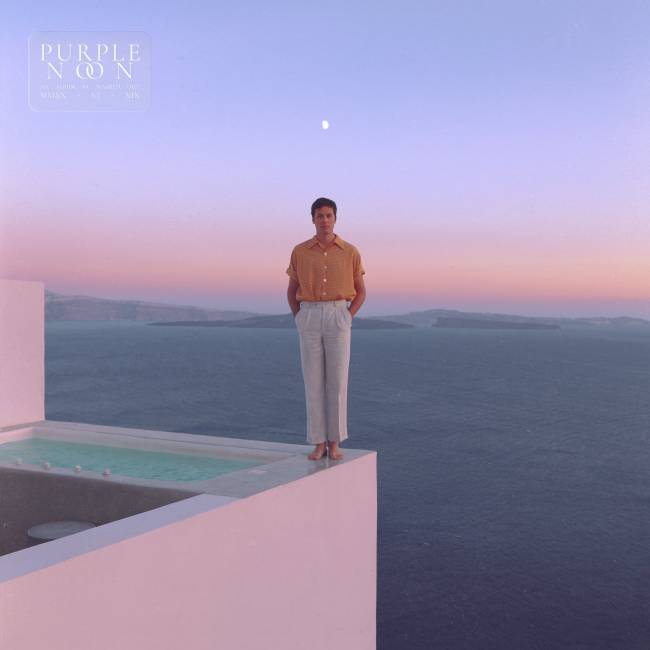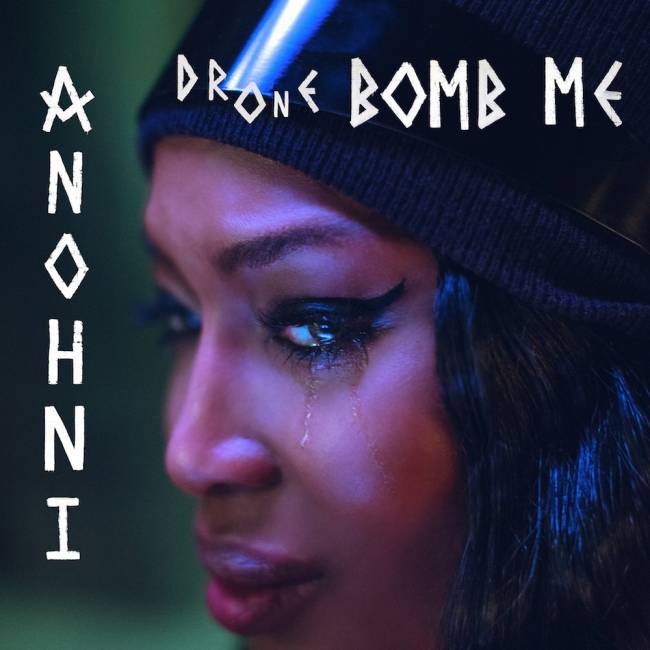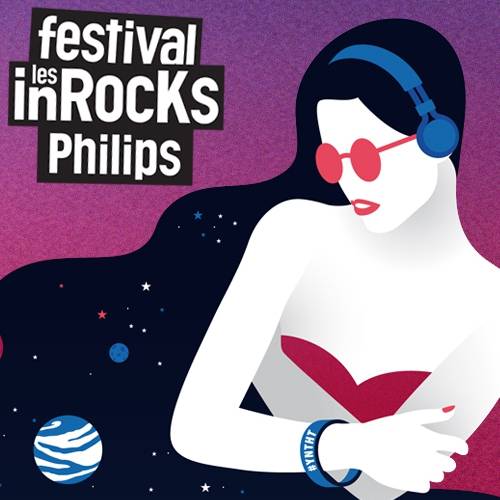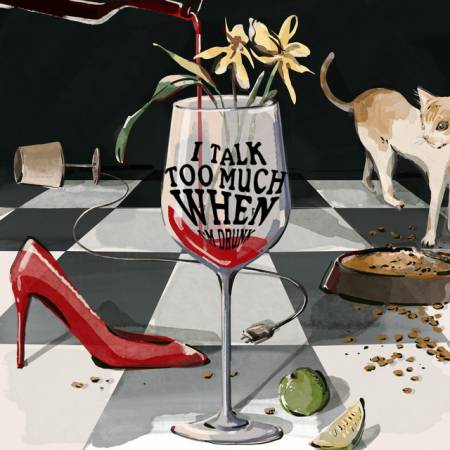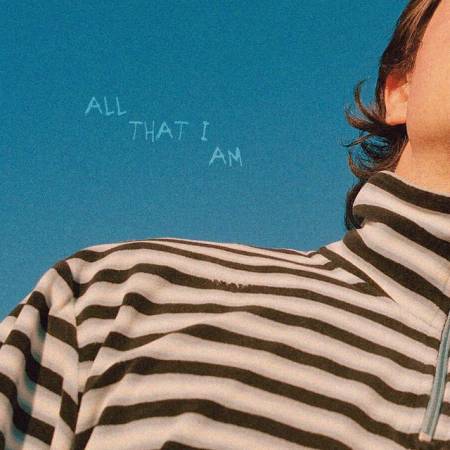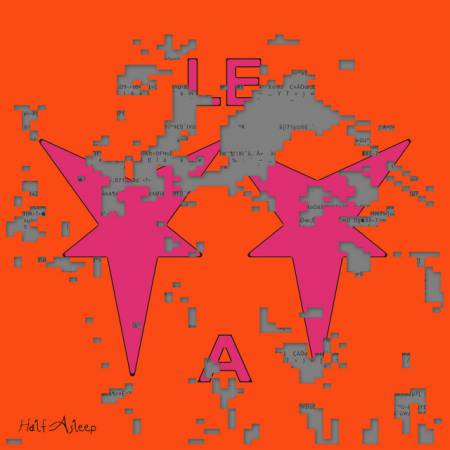Last Friday I was lucky enough to have a chat with Roman Rappak from Breton before their set at FNAC Live, a free festival hosted at Hotel de Ville - Paris City Hall. By now, you should be quite familiar with the London-based quintet, especially since they have toured across the world this past year and issued one of the best 2014 albums: War Room Stories. (Ok, maybe I'm being slightly subjective here.)
The "multi-media collective" coined their band-name after the French Surrealist writer André Breton. Such a name hints at their free spirit, their way of standing against common ideas and love for the interplay between deconstruction & creation.
Being quite curious about their creative process and experimentations, I've asked few questions to Roman, who kindly answered. Read the interview below.
For those who don't know the band, how would you describe Breton?
Breton is a group of friends that got together to make films, take photos, put on exhibitions and design stuff. It was a way of putting all the ideas together, and things that we like doing into one spot, so we collaborated. One thing that came out of this collaboration was an EP & another thing was some films. Our record got picked up by blogs and fanzines. And then we signed a record deal, put out another album and it evolved to where it is now.
You all come from different backgrounds, so how did you meet?
We all met at different places. I guess it started in the art or music scene in London: Ian played in a band with my ex-girlfriend. I was playing in a band and worked with a guy Adam was drumming for. We met Ryan at a party. It's all connected to this South London art scene.
You've all got different professional skills: you do sound design, Ian does illustrating design, Adam is a photograph and Ryan graduated in computing sciences. So how do those skills influence Breton's creative process & production?
They don't necessarily influence it, but they do make us a lot more full free to try out things: create a website, write a piece of music, score a film, design album cover… It just means we can do all these things and use all the tools at our disposal.
About your creative process, you use several unexpected – for a pop band - instruments in your songs (violins, harps, sample of knife/glass, etc.) and some oriental influences can be felt on tracks such as "302 Watch towers". Have you ever consider using more exotic instruments? I was thinking Asian instruments, for example.
When you say it sounds like it's got an Asian sound to it, it's actually because we use a Greek harp, which is a lot like a sanshin – a Chinese instrument made of a turtle shell with three strings. This Greek instrument does kind of the same sound. You're tempted to try music different ways. Also we use Caribbean steel pans on songs like "Envy". But that's because in South London there's a massive Jamaican influence, so the sound of this Caribbean/Calypso-y stuff makes me think of London.
We'll carry on using that stuff for the next recordings.If your music were to soundtrack a movie – aside from your own productions – what would this movie be like?
It will have to be a movie with lots of different stories. Because it has to be something that soundtracks different atmospheres, characters and even periods of time.
A bit like Cloud Atlas?
Yeah. A bit like Boyhood, it's in cinemas now. They've filmed it over twelve years. So it starts off as a small boy and then they've filmed the next bit two years later in real life so everyone is getting older but it's different experience.
You’ve already worked on documentaries with the BretonLABS, so are you working on any movie/documentary at the moment?
We're taking a bit of a break after the tour of this album and there’s lots of projects in the pipelines and one of these is definitely filming.
Talking about the BretonLABS, could you tell us more about this project?
It was a place where we could collect all of our ideas, rehearse, be left alone and take pictures. I think it's all very well to be an artist and have lot of ideas but unfortunately you need space to do it. You can't do everything on a laptop. You need to physically have a studio where to do something.
So do you prefer to play studio or live?
I think that they are two different things. I like the interplay between two. Sometimes, something that you make on a record is really thin & boring and when you play it live, it’s amazing. And sometimes, something that works really well live, you try to capture it on a recording, and it just sounds dead.
When you play live, some of your tracks are completely different from recording version, even live version are different from one another, e.g. “Jostle”. So do you adapt your songs to the general mood of your audience?
I guess so, it's different according to us. I think there's a big topic which is about the fact that recorded music used to be this thing that you have to search for. You find it and you can play at once on a record player and it deteriorates with time, but there's always quality to it. That meant that it was almost its own experience. A live show is like that: you can go there and it only happens once. Now, you can download everything, you can copy it effortlessly. Recorded music is still obviously magical but the uniqueness and the specialness of the experience has changed a little bit. I think that live experience is much more important now, cause everyone can download your stuff or play it on Youtube. No one’s going to be like "Oh a record!". But when people come to a show, you can present anew.
With the BretonLABS, you've collaborate with a lot of different artists (fashion designers, singers, etc.). The output is quite different from what you do with the band. How do you maintain a clear artistic line between these collaborations and the work within the band?
It's a continuation of the same thing. The band is still a project. It's like having a child: it grows in a way that you can sort of judge it, but ultimately it turns into its own thing. The way that the band is now isn't just informed by what decisions we've made. It's kind of like how the public received things, what shows we've played, when we put out a video, what the songs are like… So all these factors adapt to one entity, and I think that's what every project should be: it should be a portrait of what you do, even if you're collaborating with a singer or working with a graphic designer…
Does this mean that if your public is willing for say more hip hop in the band, you are going to put more hip hop influences in it?
I don't know, it's less to do with what they want and more to do with the fact that if I feel that we can explore something and it's exciting for us and for the public, then yeah. The third Breton album – if there's going to be a third one – could be just all hip hop or it could just be guitar music or might be no vocals. There's no decision yet, but I think it should always be flexible and you should always be surprised by it.
According to pictures posted on your social media, you're already back in the studio…
Yeah, I'm always writing. So once we feel that there's material to release… I don't want it to be a decision like "we're gonna make a third record" and then we try to make music. I want it to be like "look at the music we've made" and go "this is good enough to be the third record".
And what about this collaboration with Yuksek – you’ve been working with him lately. Are you going to release a track?
[fb_embed_post href="https://www.facebook.com/bretonlabs/photos/a.10150155488993261.298522.136493468260/10152249459178261/?type=1&permPage=1/" width="550"/]
We've spend two days working with him. He has an incredible studio by a theater and it's just really inspiring to just throw out ideas in such a place. Obviously things are going to take a while cause it has to be mixed and send back and forth. The band has a bit of a momentum now or a bit of a reach. We don't really want to put things out unless there's really 100% good, whereas before we were more reckless.
If you had unlimited budget for all of your projects what would you do with it?
I would probably make a film that captures all the different aspects of what we do. So it would be one thing that would be more than an album, more than a film, more than anything. It will be a huge budget film where I collaborate with my favorite scriptwriters, cinematographers, my favorite other musicians… We'll just make a film that's not a musical, but a film where it's an album. If you were to play the album it would work as a record, but if you'd just press play and press play on the film, it would soundtrack it perfectly.
About War Room Stories’s artwork, I've interpreted the shiny butterfly as a way to entrap beauty & ephemerality in art. But what's the real story behind this?
Good one. My favorite types of art or symbolism are the ones that you can turn it one way and it means one thing and if you turn it another way, you show another thing. You can interpret that exactly as what you said or you could see other symbolic references and cliché like rebirth. Butterflies are elegant, so covering it in this beautiful oily paint and then it being dead. Something puts a different spin on it. So yes, you're right, but it also symbolizes 3 or 4 other things. There is no right or wrong interpretations.
What artists feature in your "on-the-road playlist"?
At the moment, we listen to a lot of Hip Hop records: Racking, Freddie Gibbs & Madlib's Piñata. I've listen to a lot of John Talabot. Lots of bits and pieces, there's a lot of interesting music, especially electronic stuff.
What artists do you want to see at festivals you play?
I think Oneman is playing at Dour. I've never seen Arctic Monkeys before, I'm not much of a fan, but I'm just curious. I'm interested because they're like our generation Rolling Stones: they do one thing and made millions. They're a global act, you can go to like tiny tribes in the middle of Hawaii and they know who the Arctic Monkeys are.
About the Arctic Monkey, there was this issue of tax evasion in the British press, what do you think about that?
The Guardian column was quite interesting because it said that obviously this happened throughout history that artists do that. But specifically with the Arctic Monkeys, their big message was that they were underclass. This article was really interesting cause it asked if Alex Turner realizes that when he went to band practice as a kid the streetlights on his way home were tax paid. If he was hurt and went to the hospital, British healthcare system paid for it. It said that he's almost starving his country, when he pretends he is a product of this though old world.
So no tax-evasion for Breton?
Definitely not, all I have a need with Breton is just a way of sustaining ourselves as artists so we can carry on making music. If I made millions and millions, I'd be like "I've made enough so I can work on my music and pay whatever tax."
Stay up to date.
New music and exclusive updates in your inbox weekly.


